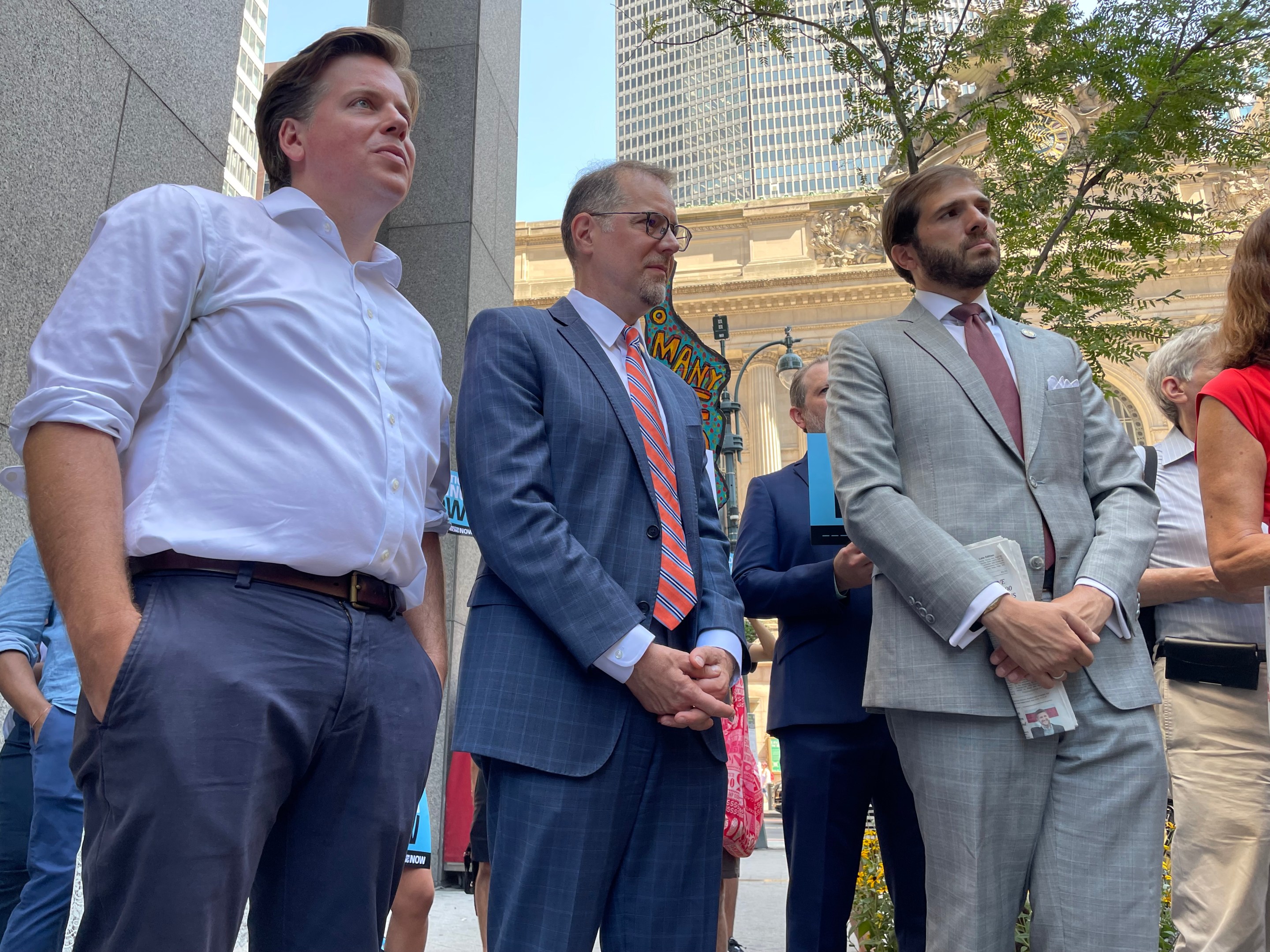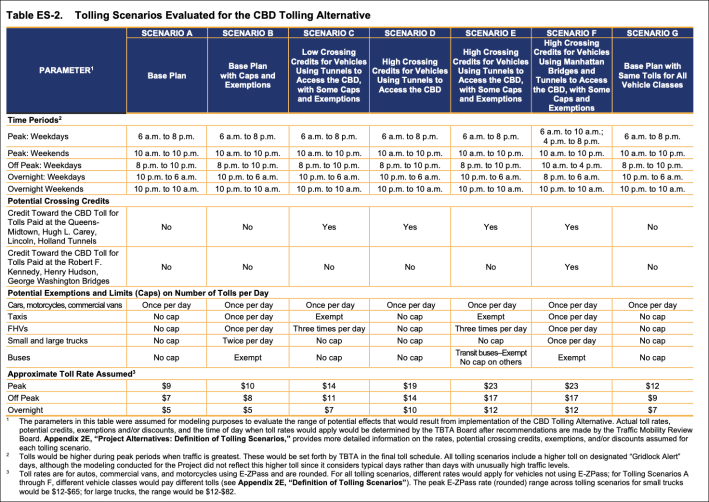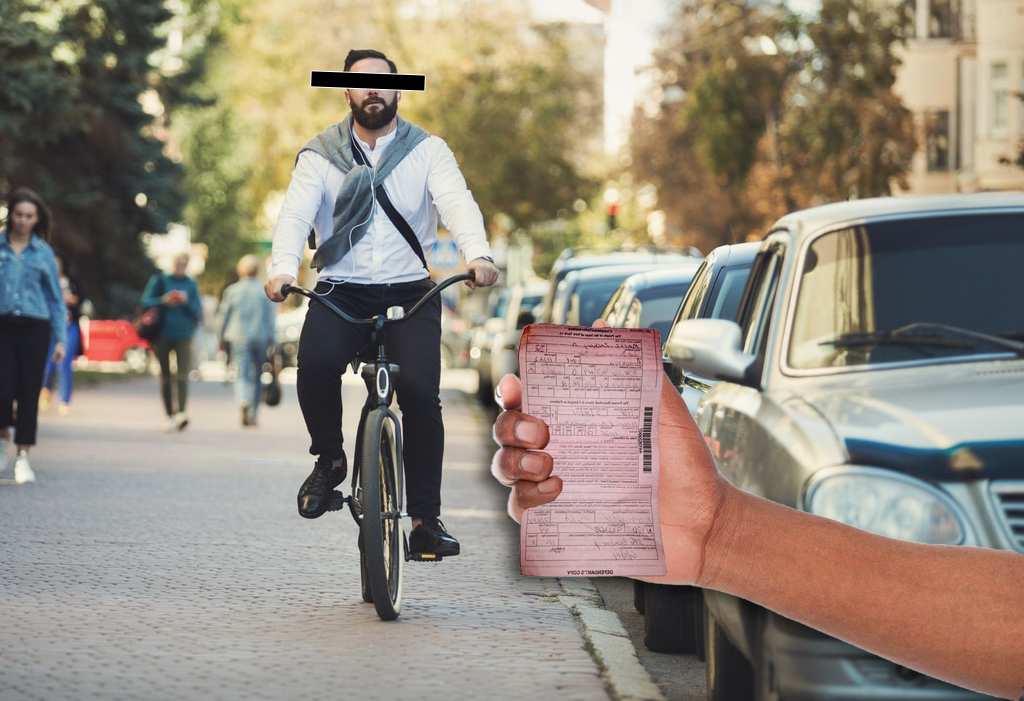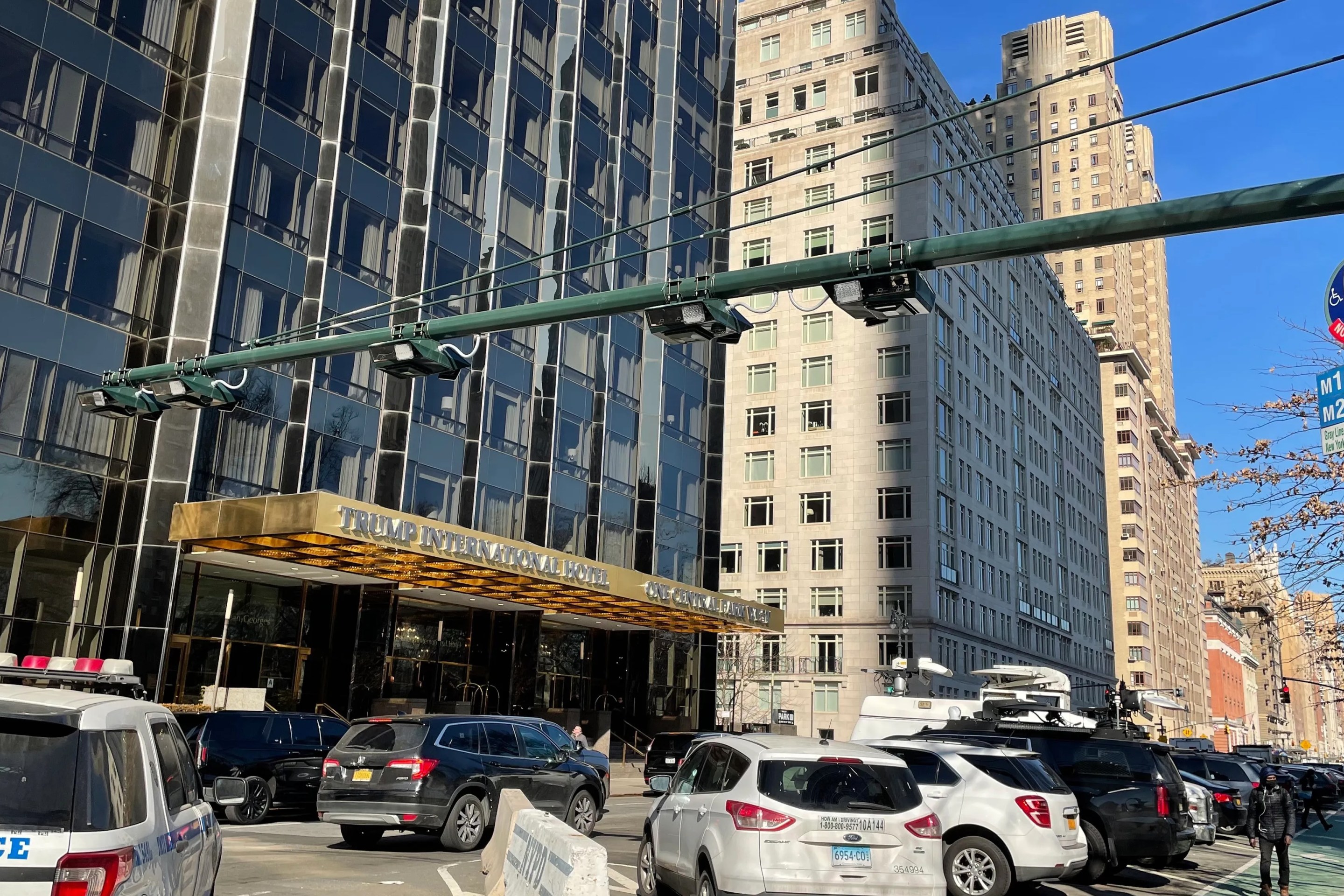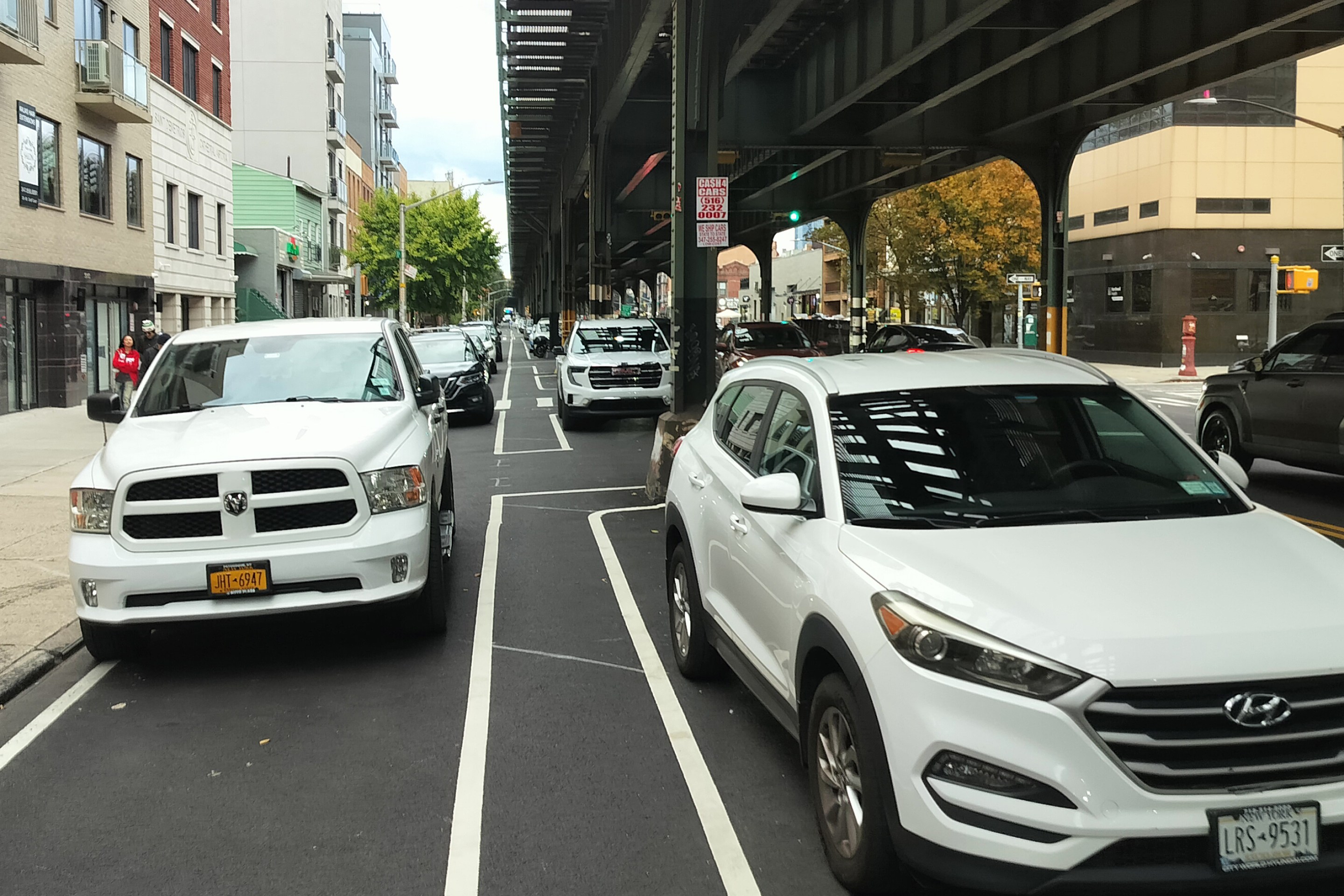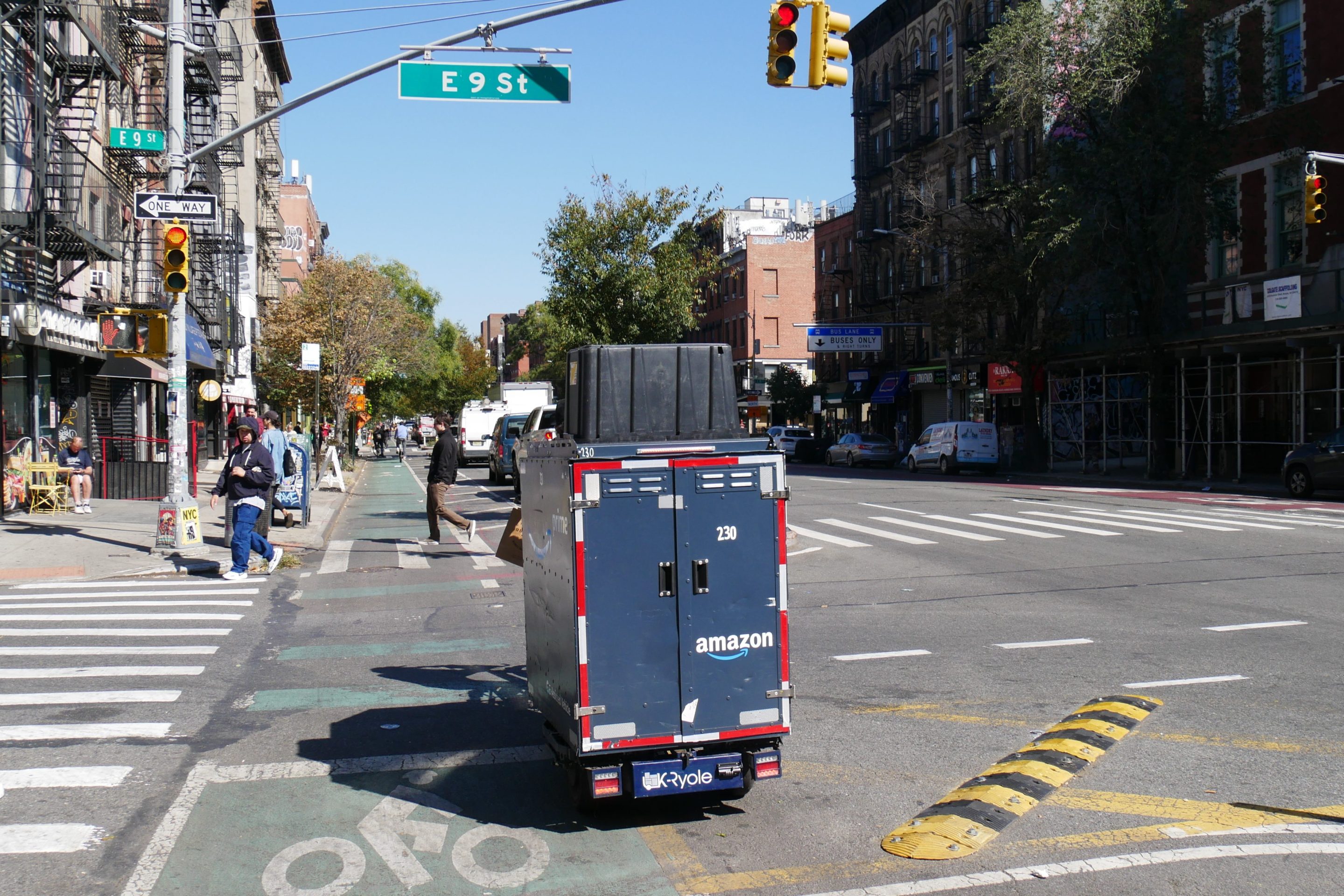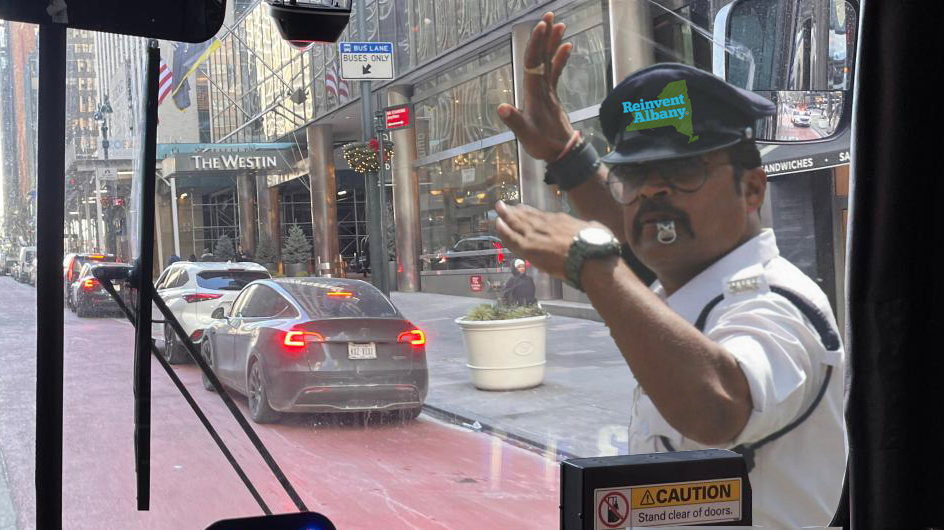As congestion pricing slowly but steadily moves from abstraction to reality, the question of who should actually pay the full tolls has become more urgent. According to the recently-released environmental assessment, the more wholesale exemptions or upstream toll credits that are doled out to certain classes of drivers, the more everyone else will shell out. But "no exemption" hardliners are hard to find right now.
In early 2022, State Senator Leroy Comrie said, "I don’t think there should be any exemptions, and I’m going to continue to say that there should be no exemptions." He added, "Once you open up that can of worms, you create major problems, because everybody wants to be exempted for something."
But now, Comrie is more circumspect, telling Streetsblog that he wants to hear the thousand screaming voices at this month's environmental assessment hearings before deciding where he stood on the question.
"Alongside the Traffic Mobility Review Board, I will listen intently to the input the public has to offer," Comrie said, referring to the group of appointees tasked with sorting out the tolls and exemptions. "The MTA has outlined at least seven scenarios, and I would like the public to have an opportunity to review those and provide their perspective before I come to a more definitive conclusion myself. I believe in hearing everyone out before making a final determination."
Other local elected officials also said that they didn't want to rule out exemptions from the traffic toll, but didn't want to hand them out like candy either.
"I think that there should be limited exemptions," Assembly Member Robert Carroll said at a pro-congestion rally on Thursday morning. "The best way to not only raise the revenue that is desperately needed for the MTA is to have a limited amount of exemptions, but the best way to have the actual benefit of congestion pricing, which is reducing trips into the central business district is to make sure there are as few exemptions as possible."
Carroll was backed up by his Albany colleague, state Senator Andrew Gounardes, who pointed out that the congestion pricing legislation Albany passed just three years ago does actually include some exemptions.
Specifically, the law creates a tax credit for New Yorkers who live in the central business district and make under $60,000 per year, and it exempts vehicles that are transporting disabled people. Drivers on the West Side Highway and the FDR will not be tolled, so long as they don't enter the toll zone below 60th Street.
"Obviously we want them to be as limited as possible," said Gounardes. "We anticipated and contemplated some when we passed the act in 2019 in the first place, folks who are disabled and who can't rely on access-a-ride for assistance. I think some legitimate discussion points can be had around how we can make sure that the system is working for everyone and how we're not overburdening one group of people versus another."
The issue of congestion pricing exemptions was a bit more abstract before the MTA published the environmental review on the toll, since the only thing people knew for sure at first was that more exemptions meant a higher toll. But now that the EA has been shared with the world, it's possible to see that enough exemptions can push the toll from as low as $9 without caps and credits to as high as $23 with a large number of caps, credits and exemptions.
One of the toll scenarios that the MTA modeled specifically combined certain exemptions with credits for drivers using tolled Hudson and East River tunnels to get into Midtown or lower Manhattan, which the agency said would cost people $14 for a peak hour trip in. While pricier than the base scenario requiring everyone not exempt under the law to pay, one local elected official said he supported the idea since it would also possibly head off too much belly aching from nearby New Jersey.
"I will say that on the tunnels, I do think the charge for those tolls should be credited against congestion fee so that we avoid people toll shopping by trying to find a cheaper way in," said Manhattan Borough President Mark Levine. "That's something that Gov. Murphy has called for and it seems that he supports this plan given that condition."
Murphy has also demanded toll credits for any drivers who come into lower Manhattan via the George Washington Bridge, a concession the alleged environmental champion has said he'd get by threatening to stop all business from happening at the Port Authority of New York and New Jersey.
.@GovMurphy goes back to the “nuclear option,” threatening to hold up business at the Port Authority if he doesn’t get what he wants - all NJ drivers treated the same on congestion pricing, whether they use the Lincoln, Holland, or GWB @wcbs880 pic.twitter.com/Y8SRzeQ5S6
— Steve Burns (@StvBurns) August 17, 2022
During the rally, a taxi driver approached and demanded an exemption for taxi drivers (the man also yelled things like "You mandate vaccines why don't you mandate helmets"). Levine said that he supported exempting taxis from congestion pricing. Taxi and for-hire-vehicle drivers have begun publicly lobbying for exemptions, arguing that because yellow cab trips include a .50 cent MTA surcharge and $2.50 congestion charge, and green cab and FHV rides include a $2.75 congestion charge, drivers are already paying their fair share.
Advocates aren't ready to start pressuring their legislative allies to hold firm on "no exemptions" just yet, both because the actual decision on exemptions is so far on the horizon, and because some say that taxi drivers have a point. The EA notes that almost every scenario the MTA modeled would knock down drivers earnings, since it would reduce the amount of vehicle miles traveled by cabbies with passengers inside the CBD.
"What is at the core of these public hearings right now, and at the core of being discussed in terms of moving the environmental assessment forward, is not exemptions," said Lisa Daglian, the executive director of the Permanent Citizens Advisory Committee to the MTA. "It's not which scenario is going to be approved, it's whether congestion pricing meets the goals of improving air quality, reducing congestion, and raising money for transit. "
The budget hawks at the Citizens Budget Commission indicated in their published testimony before Thursday's hearing that the organization could support a taxi and FHV exemption, but nothing else. The organization has previously considered the question, and advised the MTA to consider this specific exemption in terms of congestion pricing's goals of raising money, reducing traffic and improving air quality.
"The [MTA] and TMRB should make a preliminary determination whether to exempt or provide a credit to taxis and FHVs based on the projected impact on travelers’ choices between these and private cars and the resulting impact on the program’s three goals," researcher Alex Armlovich wrote in 2021. "The impact of this should be monitored and any credits or exemptions adjusted as needed if riders’ choices among taxis, FHVs, and cars suggests the pickup fee is not sufficient to best balance use of these transportation choices."
Ultimately, the power to recommend any potential exemptions beyond the ones prescribed by law will rest with the TMRB, which will begin its meetings if and when the EA is approved by the federal government, a decision that possibly will come down in January 2023. The TMRB will put together a report for the MTA Board in which in recommends the toll rates and exemptions that the MTA Board should set. So far, at least one member, frequent panel participant and Partnership for New York City President and CEO Kathy Wylde has called exemptions "problematic" and said that finding carve outs for people is not her priority.
